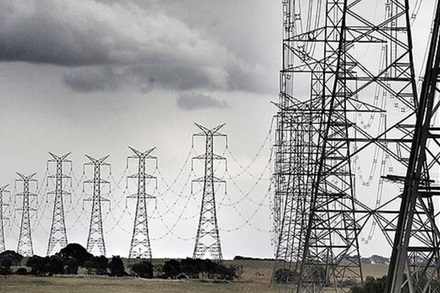Queensland government owned network operator Energex has taken the extraordinary step of banning battery storage, air conditioning and appliances such as washing machines and clothes dryers from off peak loads in a move that has stunned the solar and storage industry.
The move was announced without explanation in an email to electricians and rooftop solar installers. It seemed hastily cobbled together, it couldn’t spell “tariff” (see below), and energy experts are struggling to see the logic in it.
Indeed, sources told RenewEconomy that the response was so savage that Energex had advised that the rule changes would be withdrawn by the end of the day, and only re-introduced after proper consultation with the industry. Indeed, that was confirmed by a new email from Energex that it was only a proposal, and apologies for the confusion.
As it is, the industry is perplexed. They say the proposed changes brings to an end decades of efforts of trying to shift consumption away from peak demand.
And they pointed out that it made no sense to exclude battery storage from off-peak loads, but at the same time allow electric vehicle batteries – as the load looks exactly the same to the network. And why allow another form of storage – hot water – and not batteries?
Some suggested it may be a sign of panic in the network industry in the face of the biggest changes to energy demand in a century, or just a ruse to increase peak load and give the network an excuse to push the case for yet more poles and wires.
“I have been in this business for 35 years and I am at a complete loss to explain why Energex has done this,” said Mike Swanston, a consumer advocate who was a long-serving senior executive at Energex. “I cannot understand why they would make this ruling, and why there was no consultation with industry to change a decades-old practice.”
 The ruling means that the cheaper 18c/kWh off-peak tariff – also known as controlled load – will not be available for newly purchased air conditioners, washing machines and dishwashers. And won’t be able to be used by households with battery storage as arbitrage by charging up at cheap rates at night and selling at higher rates during the day.
The ruling means that the cheaper 18c/kWh off-peak tariff – also known as controlled load – will not be available for newly purchased air conditioners, washing machines and dishwashers. And won’t be able to be used by households with battery storage as arbitrage by charging up at cheap rates at night and selling at higher rates during the day.
Experts say it is just the latest in a series of sudden and seemingly indiscriminate tariff and rule changes made by networks across Australia as they struggle to plug leaks in their revenue and business models caused by the rise of rooftop solar and battery storage.
All sorts of tariff changes have been proposed and implemented, including slashing export tariffs to zero or a minimal rate, blocking connections, restricting exports from solar PV, jacking up fixed network tariffs, introducing ‘demand charges’ that are seen more as a revenue raiser than a solution to peak loads, introducing high metering charges, and proposing fees and charges to households who choose to quit the grid.
Recent tariff changes in Energex, which operates in the south-east corner of Queensland, including Brisbane, the Gold Coast and the Sunshine Coast, have also been controversial.
Changes to fixed tariffs means that low-consumption households are paying up to 72c/kWh, and high demand tariffs are placing huge costs on small businesses.
Energex also recently shifted controlled-load electric hot water systems from midnight to the middle of the day – reflecting the shift in supply as solar booms – but refuses to pay higher tariffs for the solar output networks had previously described as useless.
Off-peak loads have been used widely, particularly for hot water, to move demand away from the daytime peak. Some analysts don’t mind this being reversed, because they see off-peak simply propping up coal-fired generators that had little demand at night time but could not switch off.
Malcolm Richards, the head of the Master Electricians Australia, said his complaint derived from a conflict of interest by the network by being able to set tariff changes to its own advantage.
He said Energex was likely to create new tariffs that would incorporate battery storage, air con and other appliances, but they may not be as attractive as they could be.
Richards is also at war with Energex over its proposal to establish a new subsidiary company that threatens to compete with electricians and provide jobs for its own staff.
“This is a huge conflict of interest. They are changing the rules, creating a new subsidiary and gaining a financial advantage over others. It is not right.”










